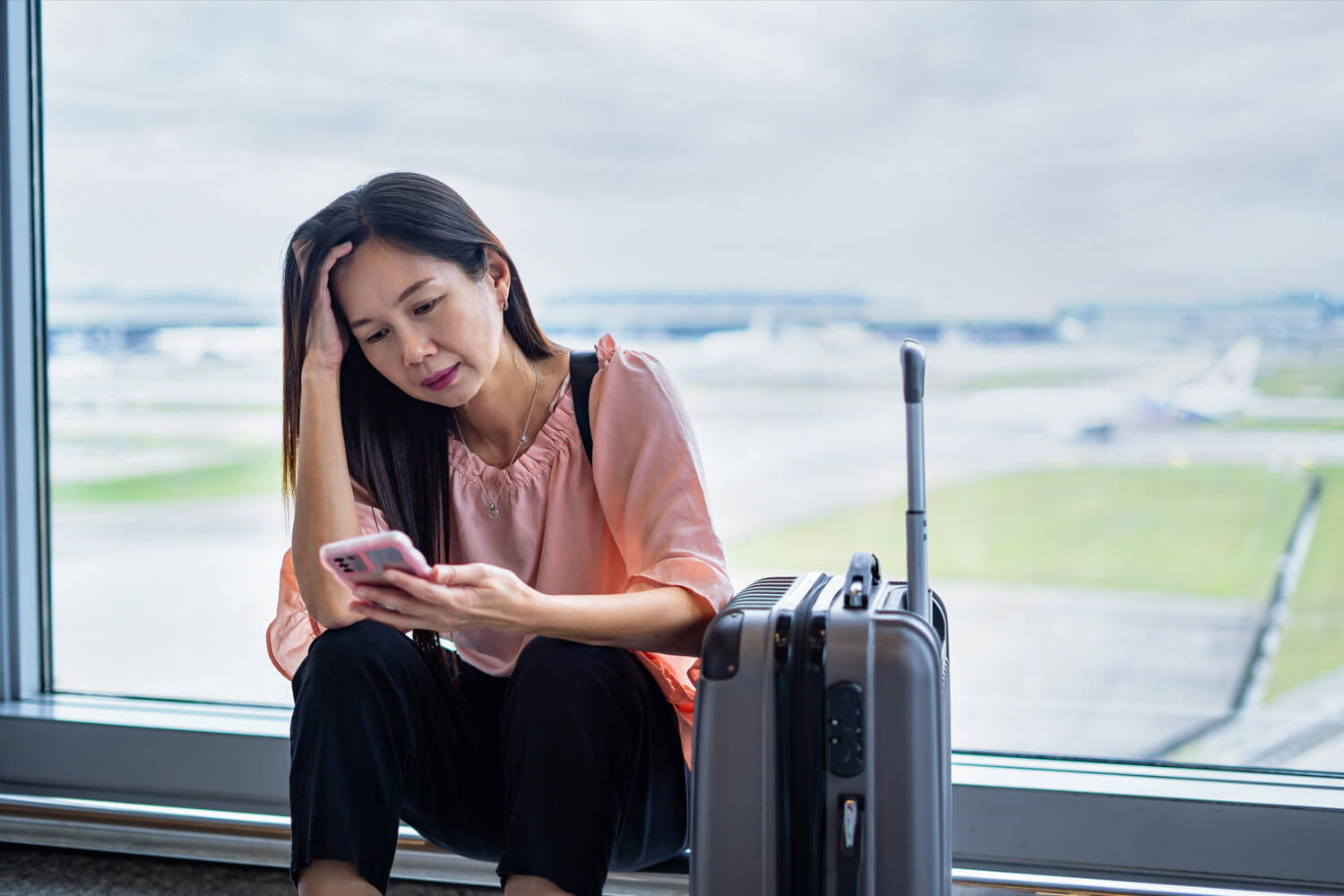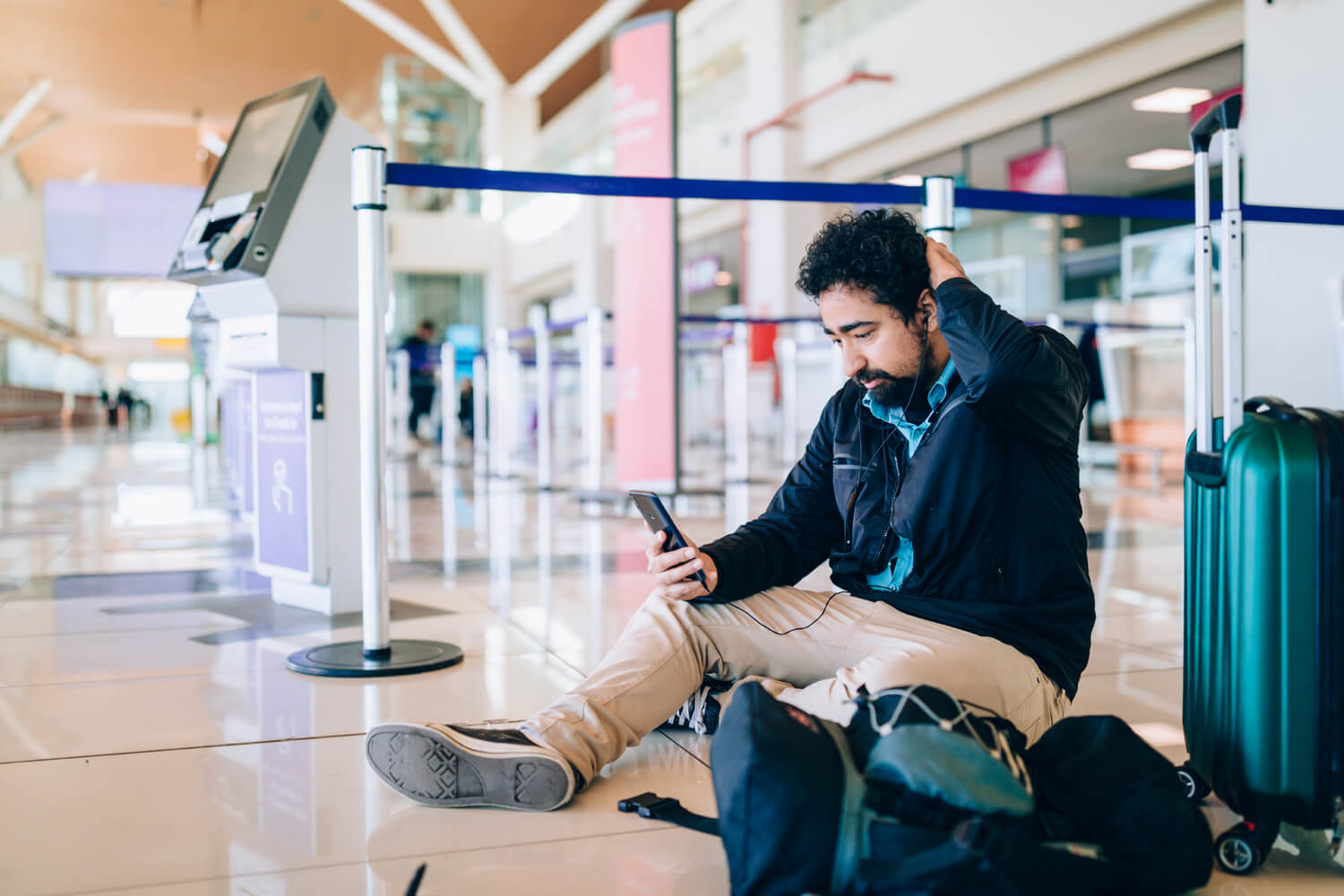Flight Refund Rules – Know Your Rights

You're sitting at the airport. Your flight just got canceled. Again. The ticket agent says you can get a voucher, but you need cash back for your trip. Sound familiar?
You have more rights than you think. Many travelers don't know about the airline automatic refund rules that protect them. These new laws can put real money back in your pocket.
The new airline refund law changed everything for passengers. No more fighting for months to get your money back. No more being stuck with useless vouchers. Let's break down what you need to know.

What is the new flight automatic refund rule
The Automatic Refund Rule is a DOT regulation that requires airlines to issue a cash refund when your flight is canceled or significantly changed and you decline rebooking or a travel credit. You should not have to chase the airline for the money. The rule also covers fees for services you did not receive, such as seat selection or checked bags. Airlines must send refunds within seven business days if you paid by credit card and within 20 calendar days if you used another form of payment.
The old system was broken. Airlines would:
- Offer vouchers instead of cash
- Take forever to process refunds
- Make you jump through hoops
The new system protects you. Key automatic refund requirements for airlines went into effect on May 16, 2024, when President Biden signed the FAA Reauthorization Act of 2024 into law, and the remaining airline refund protections under DOT's rule are effective as of October 28, 2024.
Key triggers for automatic refunds
Now that you know what the Automatic Refund Rule is, here’s when it kicks in. If you decline the airline’s alternative, you are owed an automatic cash refund to your original payment method when any of the following happen:
- The airline cancels your flight.
- A significant delay occurs. Three hours or more for a domestic departure. Six hours or more for an international departure.
- The departure or arrival airport changes.
- You are moved to a lower cabin or lose a paid seat or amenity.
- The airline adds a connection you did not book or makes a major schedule or aircraft change that disrupts confirmed plans or accommodations.
- You paid fees for services you did not receive, such as seat selection, checked bags, Wi-Fi, or priority boarding.
Refunds should arrive quickly. Airlines must process credit card refunds within seven business days and other payment types within twenty calendar days. You should not have to chase the money, but save emails and screenshots so you can follow up with the airline or file a DOT complaint if it runs late.

Why the new airline refund law matters
It matters because it turns refunds into a guaranteed right and saves travelers real money. Airlines must issue automatic cash refunds when flights are canceled or significantly changed, and you decline rebooking or a credit.
The law creates one national standard across carriers, covers paid extras you did not receive like seats and bags, and applies to trips to and from the United States. Refunds go back to your original payment method within seven business days for credit cards and within twenty calendar days for other payments. Less haggling. Faster money back. Clear rights you can rely on.
Do airlines have to compensate for delays?
This is the big question: "Do airlines have to compensate for delays?" The answer is yes, but with conditions.
The 3-hour rule for domestic flights:
- Remember that to be eligible for compensation, your flight delay needs to be two things: significant (3 hours or longer) and controllable by the airline.
- Weather delays usually don't qualify.
- Mechanical problems do qualify.
- Crew scheduling issues qualify.
What airlines owe you for delayed flights:
- Full refund if you don't want to travel anymore
- Rebooking on the next available flight
When do airlines have to refund you for a delay?
- Maintenance issues
- Staff scheduling problems
- Equipment failures
- Catering delays
When do airlines not have to refund you for a delay? These are a few instances wherein you are not entitled to receive a refund if your flight gets canceled or delayed: 
- Bad weather
- Air traffic control delays
- Security incidents
- Acts of nature
Plane delay refund scenarios
Let’s look at some examples. Imagine your 2 p.m. flight gets delayed until 6 p.m. You qualify for a full refund if domestic! And you get to choose if you will take the refund or fly later.
What if weather delays your flight 5 hours? You get rebooking, but no cash compensation. This is simply because weather isn’t the airline’s fault, so they don’t need to pay you back.
Let’s say mechanical problems delay your international flight by 7 hours. A full refund is available to you, as well as meals and even possible hotel coverage.

How to claim your refund or compensation
Getting your money takes the right approach. Here's your step-by-step guide:
Step 1: Know your rights immediately
- Check if your situation qualifies.
- Take photos of delay/cancellation notices.
- Keep all receipts for expenses.
Step 2: Contact the airline first
- Call customer service.
- Use their website or app.
- Ask specifically for a refund, not a voucher.
Step 3: Document everything
- Get confirmation numbers.
- Save email exchanges.
- Write down names of representatives.
Step 4: Escalate if needed
- File a complaint with the DOT.
- Use their online complaint system.
- Include all your documentation.
- Avoiding common mistakes when requesting a refund
Don't accept vouchers without reading the fine print:
- Expiration dates might be short
- Restrictions can make them hard to use
- Cash is almost always better
Don't wait too long:
- File claims quickly after disruptions
- Some airlines have time limits
- Evidence gets harder to find later
Don't accept "that's our policy.” The new airline rules override old airline policies. You have federal rights now and airlines must follow the law!
Airline refund policy differences by carrier
Carriers still differ in what they voluntarily offer for controllable delays (meals, hotels, rebooking), and the Airline Cancellation and Delay Dashboard makes it easy to compare. Use it before you book, and remember that airlines automatic refund covers cancellations/significant changes even if the airline offers a voucher first.

Legal resources for dispute
If a refund drags on, consider getting help. Our members tap attorneys for letters, claim reviews, and advice on consumer protections that sit alongside airlines automatic refund including what to do if a business stonewalls you.
When to consider legal assistance:
- Airlines refuse valid refund requests.
- They offer vouchers instead of required cash refunds.
- Processing takes longer than legal limits.
- You have significant expenses from delays.
How LegalShield can help: LegalShield Members get access to experienced attorneys who understand consumer protection law. Whether you need help with demand letters, understanding your rights, or taking further action, legal guidance can make the difference between getting your money back or being stuck with a useless voucher.
Need help with airline refund disputes? LegalShield Members have access to experienced attorneys who can help with travel-related legal issues, including airline refund claims and consumer protection matters. From writing demand letters to understanding complex airline policies, legal guidance can help you get the compensation you deserve.
Ready to protect yourself? Visit LegalShield.com to learn more about affordable legal coverage and join the millions who have access to legal help when they need it most.
Written by Elyse Dillard, Content Specialist at LegalShield. Elyse creates educational resources about legal and identity theft protection services. She works to make complex legal concepts more accessible to readers and has contributed to numerous articles on the LegalShield blog.
Pre-Paid Legal Services, Inc. ("PPLSI") provides this blog as a public service and for general information only. The information made available in this blog is meant to provide general information and is not intended to provide legal advice, render an opinion, or provide a recommendation as to a specific matter. The blog post is not a substitute for competent legal counsel from a licensed professional lawyer in the state or province where your legal issues exist, and you should seek legal counsel for your specific legal matter. All information by authors is accepted in good faith. However, PPLSI makes no representation or warranty of any kind, express or implied, regarding the accuracy, adequacy, validity, reliability, availability, or completeness of such information. The materials contained herein are not regularly updated and may not reflect the most current legal information. No person should either act or refrain from acting on the basis of anything contained on this website. Nothing on this blog is meant to, or does, create an attorney-client relationship with any reader or user. An attorney-client relationship may be formed only after the execution of an engagement letter with an attorney and after that attorney has confirmed that no conflicts of interest exist. Nothing on this website, or information contained or transmitted by this website, is intended to be an advertisement or solicitation. Information contained in the blog may be provided by authors who could be a third-party paid contributor.
PPLSI provides access to legal services offered by a network of provider law firms to PPLSI members through membership-based participation. Neither PPLSI is not a law firm, and its officers, employees or sales associates do not directly or indirectly provide legal services, representation, or advice.
LegalShield is a trademark of Pre-Paid Legal Services, Inc. (“LegalShield”). LegalShield provides this blog as a public service and for general information only. The information made available in this blog is meant to provide general information and is not intended to provide legal advice, render an opinion, or provide a recommendation as to a specific matter. The blog post is not a substitute for competent legal counsel from a licensed professional lawyer in the state or province where your legal issues exist, and you should seek legal counsel for your specific legal matter. All information by authors is accepted in good faith. However, LegalShield makes no representation or warranty of any kind, express or implied, regarding the accuracy, adequacy, validity, reliability, availability, or completeness of such information. The materials contained herein are not regularly updated and may not reflect the most current legal information. No person should either act or refrain from acting on the basis of anything contained on this website. Nothing on this blog is meant to, or does, create an attorney-client relationship with any reader or user. An attorney-client relationship may be formed only after the execution of an engagement letter with an attorney and after that attorney has confirmed that no conflicts of interest exist. Nothing on this website, or information contained or transmitted by this website, is intended to be an advertisement or solicitation. Information contained in the blog may be provided by authors who could be a third-party paid contributor. LegalShield provides access to legal services offered by a network of provider law firms to LegalShield members through membership-based participation. LegalShield is not a law firm, and its officers, employees or sales associates do not directly or indirectly provide legal services, representation, or advice.



